

At the start of 2020, the UK Seafood Innovation Fund announced funding for 26 projects that will investigate innovative ways to improve the sustainability and productivity of the UK seafood industry. These projects span the breadth of the seafood sector; from wild capture fisheries to seafood processing, aquaculture research, and more.
Despite challenges posed by the global pandemic, most of the feasibility studies have now been completed. The 12 Research and Development (R&D) projects will continue into 2021, and many have recently reported encouraging results.
This blog shares exciting updates from two R&D projects: ‘Waste Capture System (RD024)’, led by Aqua Innovation Ltd, and Robust and resilient flat oyster fisheries (RD042)’, led by Exo Environmental Ltd.
The Waste Capture System project led by Aqua Innovation Ltd is working to develop and install a method of capturing, recovering and treating the waste material from under open net aquaculture cages, to prevent seabed contamination.
The contamination of the seabed directly below open net aquaculture cages is currently a major environmental concern, as fish faeces, uneaten feed and residual chemicals deposit on the seabed. The only solution proposed to date is to move aquaculture cages further offshore. However, this poses various challenges for the aquaculture industry and does not tackle the issue of environmental contamination.
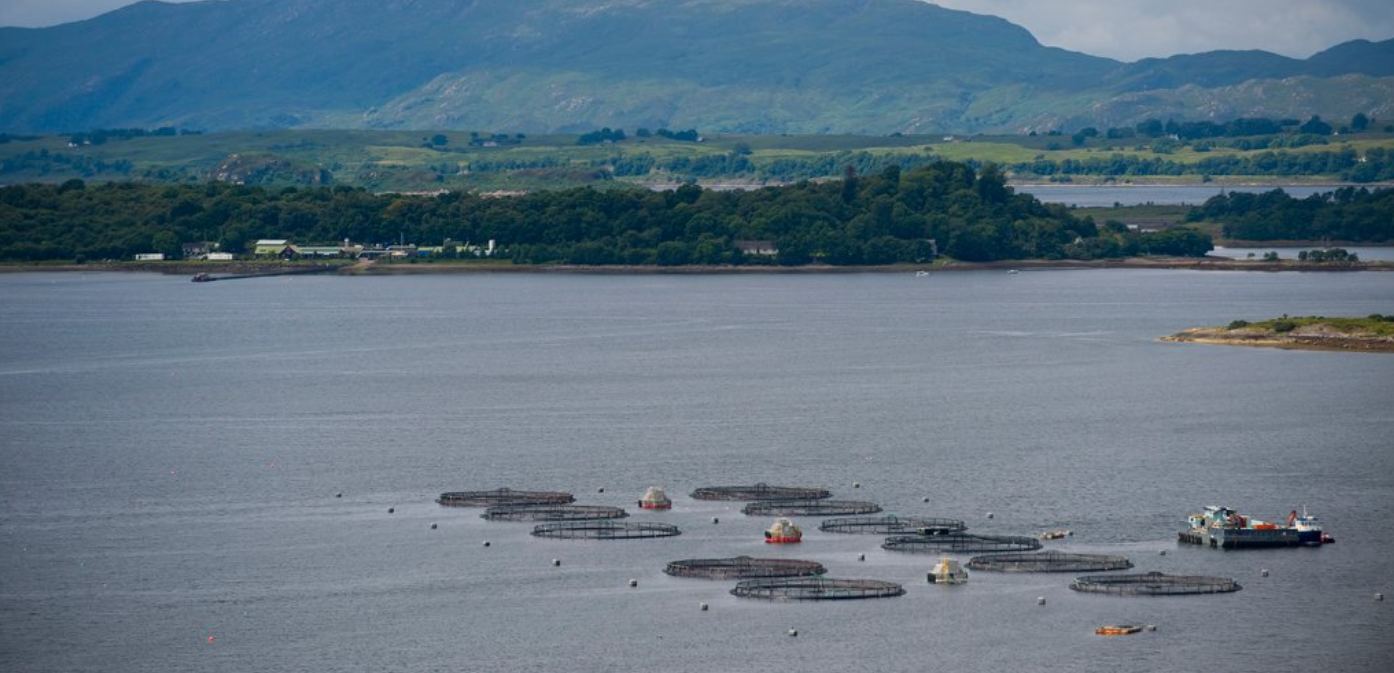
Open net cages enable ocean currents to deliver fresh oxygen to the fish, however they also enable waste to freely disperse and contaminate the seabed below (Source: Aqua Innovation Ltd)
The project led by Aqua Innovation Ltd. has seen the development of a new, innovative method to capture, recover and treat the waste material from under the cages. With SIF funds, the first waste capture system was designed, built and fitted at Wester Ross Salmon’s Ardessie site in July 2020. Initial results from the fitting have been positive, as the system has been successfully recovering waste from under the open net cage.
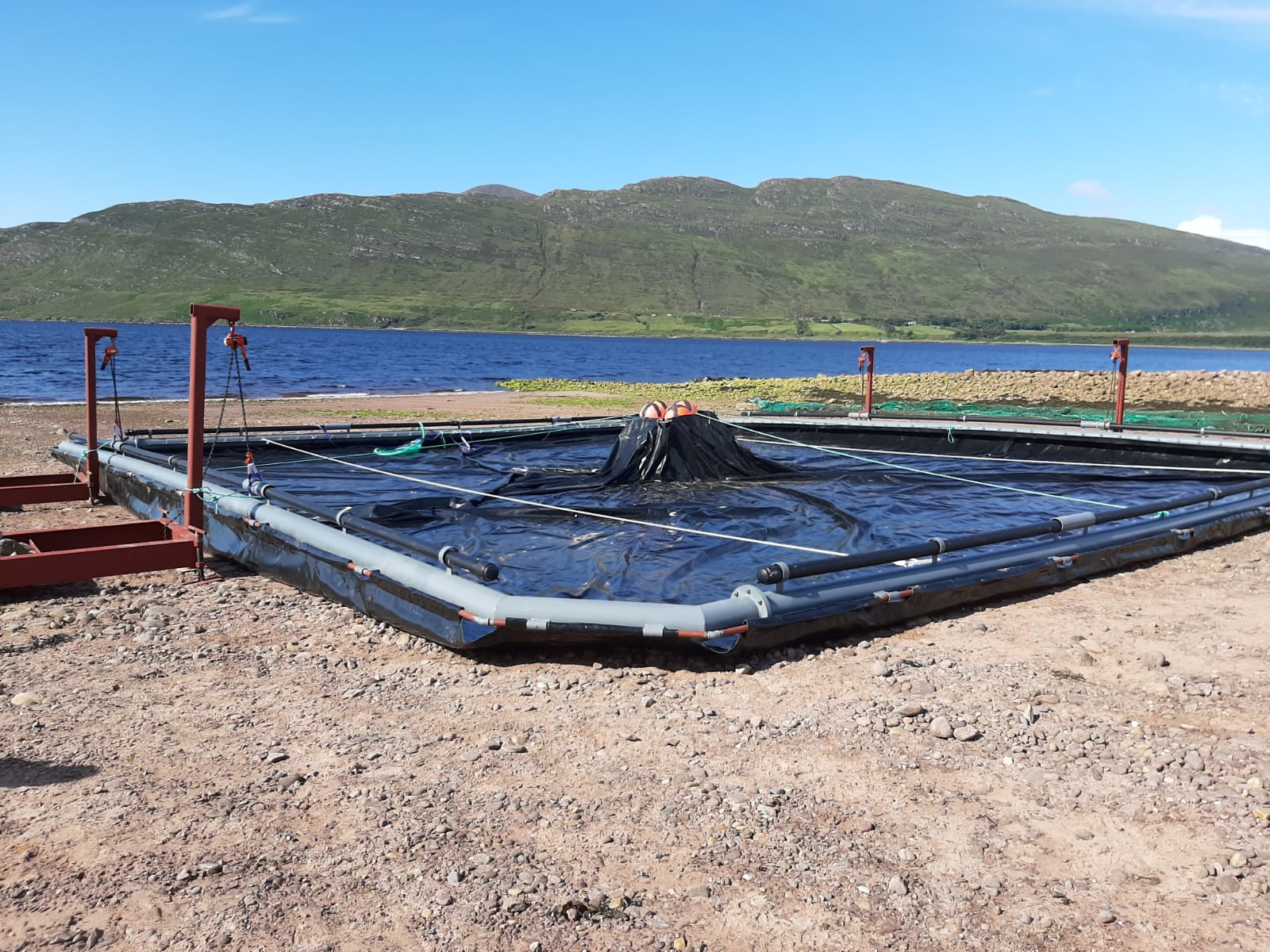
The waste capture system in production, soon to be ready to recover waste from under open net cages. (Source: Aqua Innovation Ltd.)
Aqua Innovation Ltd are now refining the process to reduce the water content of the waste, to further reduce the environmental impact of aquaculture. In addition, they are also planning a second fitting on this site, taking on board lessons learnt from the first fitting in July.
Exo Environmental Ltd., together with partners from University of Essex, Brightlingsea Harbour Commissioners and Richard Haward’s Oysters, have been working towards an innovative way to improve native flat oyster productivity.
To start their project, Exo Environmental developed a unique, 3D printable mould to create discs for oyster spat to colonise. The discs themselves will be constructed using dredged, clean material – a more environmentally-friendly choice than the traditional plastic used currently in oyster farming. In addition, the discs will be coated in a special lime mix, to encourage spat colonisation.
In July 2020, the first discs were deployed at three locations in Brightlingsea Harbour, Essex, where they are being monitored. Exo Environmental Ltd. produced this video to show their deployment.
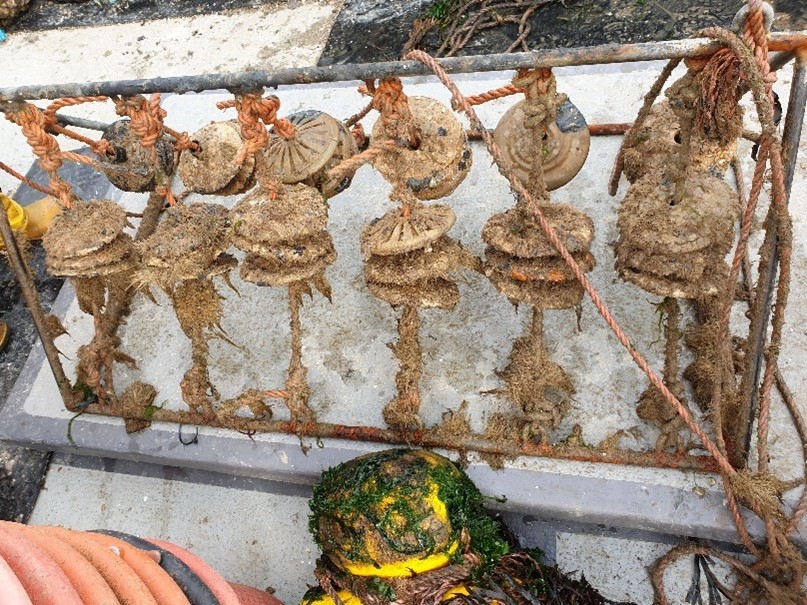
The discs were mounted on custom made frames and deployed in Brightlingsea Harbour, Essex (Source: Exo Environmental Ltd.)
The discs will remain in the harbour for 9 months in total, but were temporarily pulled out the water after 2.5 months, for researchers from the University of Essex to analyse the progress. The results were positive; flat oyster spat were growing, along with many other amazing marine species, including Sea Slugs, Star Ascidian, Sea Squirts and Coralline Algae!
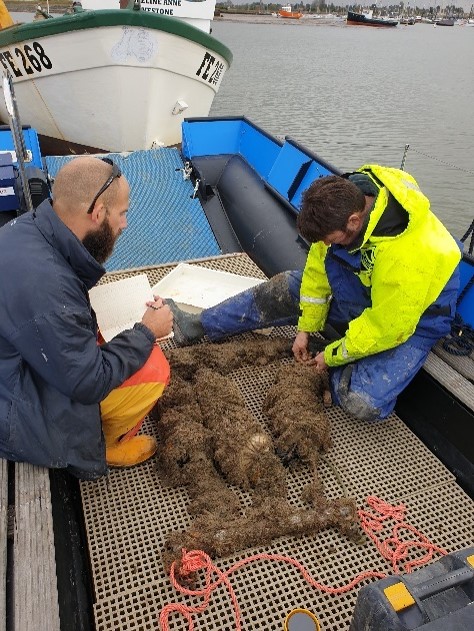
Project partners from the University of Essex analysed the discs after 2.5 months in the harbour (Source: Exo Environmental Ltd.)
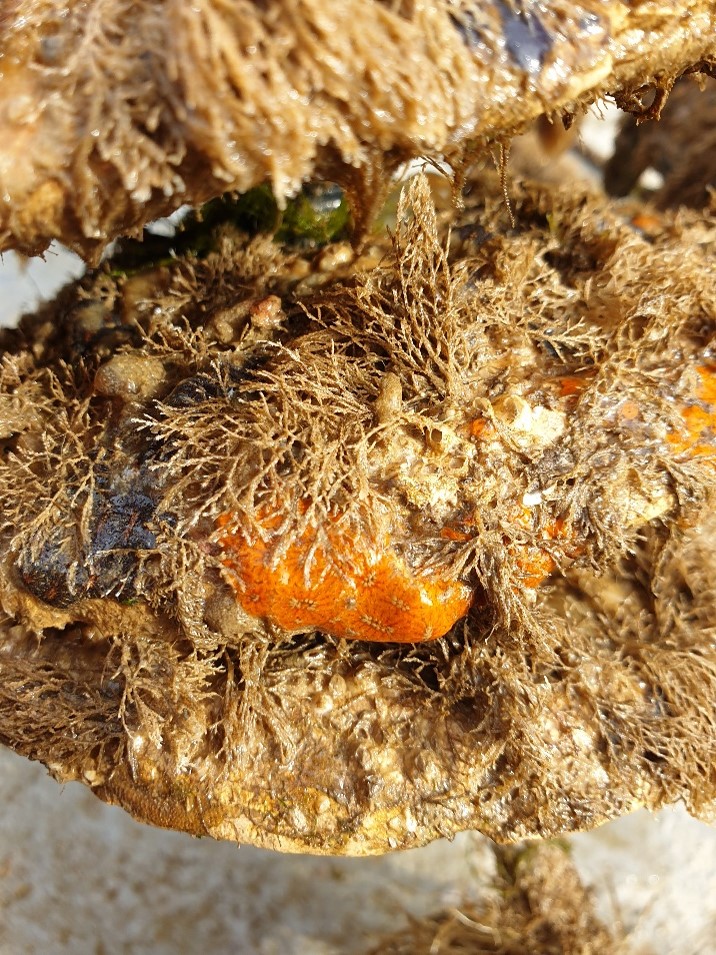
Close up of discs showing marine life growing. (Source: Exo Environmental Ltd.)
The results of the project will be compared with data from traditional, plastic spat collectors, to gain an accurate measure of oyster productivity and mortality using the new disc design.
These exciting project updates show the power of innovation to support a more sustainable and productive UK seafood industry, and we look forward to sharing more updates from our #seafoodinnovators